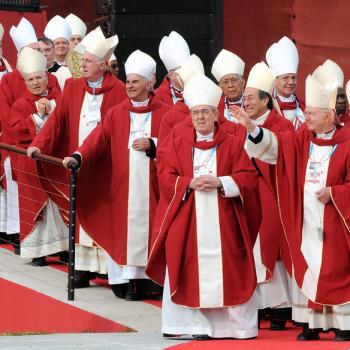Part of the genius of the Declaration of Independence, whose passage we celebrate today, is that it lays out in very explicit terms the assumptions–the “self-evident” truths–upon which the new nation and its government would be founded:
We hold these truths to be self-evident, that all men are created equal, that they are endowed by their Creator with certain unalienable Rights, that among these are Life, Liberty and the pursuit of Happiness.–That to secure these rights, Governments are instituted among Men, deriving their just powers from the consent of the governed,
via Declaration of Independence – Text Transcript.
Today, these truths are no longer “self-evident”; that is, needing no proof because they can be taken for granted. On the contrary, a good number of Americans don’t believe them at all, and they would seem to have little, if any place in contemporary American culture.
“All men are created equal”? Their “Creator” endows them with unalienable right (that is, rights that cannot be taken away)? Such creationism cannot be taught in most schools and is no longer intellectually respectable. I’m surprised that there are not lawsuits to prevent the Declaration of Independence from being read publicly and from being cited in any kind of official government capacity. Such language is surely offensive to non-believers, and its pre-Darwinian worldview is a violation of modern science.
Neither the government nor the culture accepts the inalienable right to life, not in our day of abortion on demand. Liberty? Our freedoms are being violated and restricted all the time, both by the government’s laws and regulations and by the cultural pressure that imposes intellectual and social conformity. I will grant that the government and our people still value “the pursuit of happiness” above all, to the point of trumping the right to life (as in the pursuit of sex without having to worry about conceiving children) and the right to liberty (as in the pursuit of health, wealth, and safety even at the expense of a coercive and intrusive government). Though the government is quite willing to thwart a citizen’s pursuit of happiness when it conflicts with larger social ends.
The Declaration says that the purpose of governments is to “secure these rights”; and yet today the government seems to be the power that threatens these rights. And in the void left when the Creator is taken out of consideration, the government has rushed in. Today governments are thought to endow people with rights–as in the government’s construction of gay marriage–not some absolute transcendent Creator, and what government endows, it can take away.
Here is the question: Can America exist as a free, self-governing nation once its founding assumptions are no longer believed? It is often said that, unlike other nations, being an American is not a matter of belonging to a particular ethnic group; rather, being an American means holding to certain ideas, as embodied in our founding documents. Immigrants who want to become citizens are tested on their knowledge of these American principles. Well, what happens if no one believes in those ideas any more?
One possibility is that these ideas and ideals are encoded in our Constitution, our political system, and our laws. Even if the citizens no longer accept the presuppositions that gave rise to them, our Constitutional system can keep America going like a machine. But is that going to be enough?
UPDATE: I am NOT saying that the ideals of the Declaration are specifically Christian or that Americans need to be Christians. Jews, Unitarians, Muslims, and followers of other religions could sign the Declaration, as could non-religious Deists like its author. And I’m not just referring to the creationist assumptions here but to other aspects of the worldview that manifested itself in the founding of the United States.
The point is that worldviews manifest themselves in different political theories. It’s no accident that post-Darwinian views of inevitable progress led to utopian, collectivist government systems like socialism, Marxism, and Fascism. Ayn Randian objectivism, which rejects God in favor of the free markets, would result in a kind of plutocracy, or government by the wealthy. A Nietzschean mindset would favor government by a “strong man.”
Postmodernism, which believes reality is a social construction, would favor a government that can freely construct new moralities and structures, unrestrained by any notion of creation, nature, or objective reality.. This is what we have today, as we see in the construction of gay marriage.
My question is simply whether a particular form of government and national culture can last, once the worldview that gave it birth is no longer generally accepted. When Russians stopped believing in Marxism, the Soviet Union collapsed. Could that happen here?















